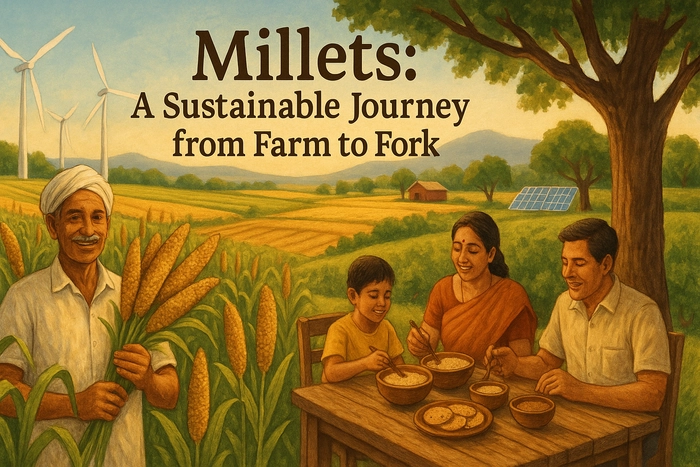From Farm to Fork: How Millets Support Sustainable Living
In an age where climate change and food security are growing concerns, choosing what we eat can make a huge difference — not just to our health but to the planet too. Enter millets: ancient grains that are paving the way for a more sustainable future.
🌾 Why Millets Are Environmentally Friendly
Unlike water-thirsty crops like rice and wheat, millets thrive in arid conditions and require minimal irrigation. They grow well in poor soil, need fewer chemical inputs, and have a short growing cycle. This means they use fewer resources while producing a nutrient-dense yield.
👩🌾 Empowering Farmers and Communities
Millets are often grown by small-scale farmers. By including millets in our diets, we support these farmers and promote crop diversity. This strengthens rural economies and reduces dependency on monoculture cash crops.
🍲 Bringing Sustainability to Your Plate
Incorporating millets into your meals isn’t just good for the environment — it’s good for you too! Packed with fiber, protein, and essential micronutrients, millets are a wholesome addition to your breakfast, lunch, or dinner.
Try swapping your regular rice or wheat dishes with millet-based recipes. Millet salads, porridges, dosas, and even baked goods are delicious ways to make a positive impact.
🌍 A Small Step Towards a Greener Planet
Sustainable living begins with mindful choices. By choosing millets, you contribute to water conservation, biodiversity, and resilient food systems — all while nourishing your body.
So next time you plan your meals, think of the journey from farm to fork — and how millets can be a simple yet powerful ingredient for change.


